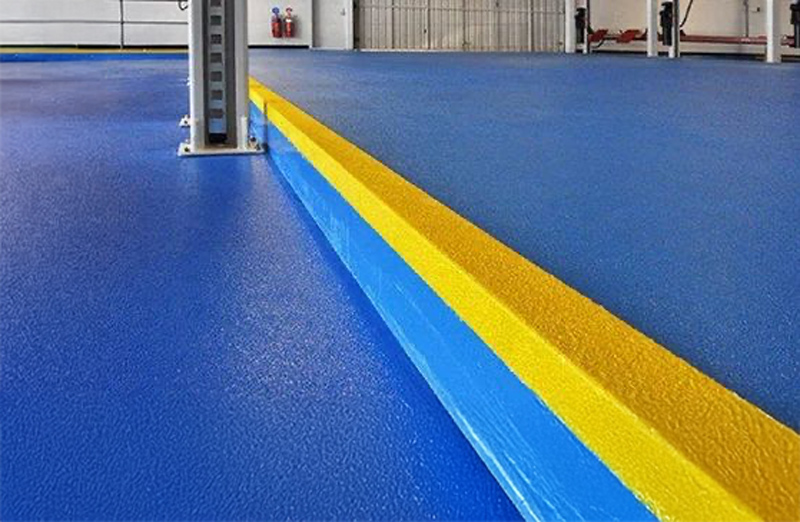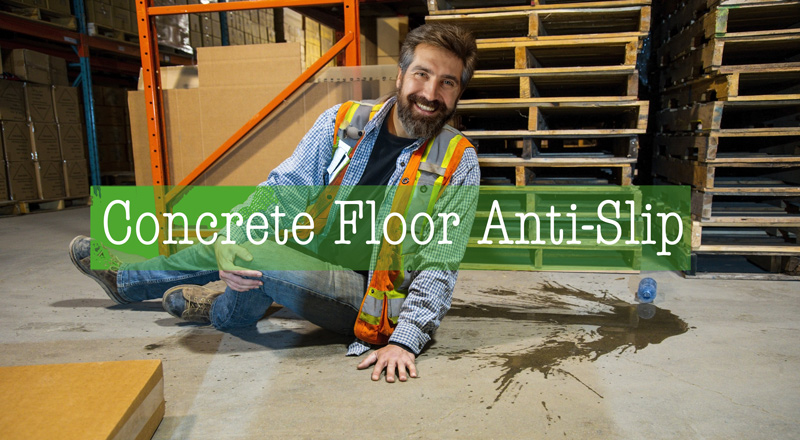Choosing the Correct Level of Concrete Floor Anti-Slip
A Story of Safety and Success
Imagine walking into a bustling commercial kitchen, where chefs move swiftly, carrying hot pans and sharp knives. The floor is a hive of activity, with spills and splashes inevitable. Now, picture a mechanic’s garage, where oil and grease are part of the daily grind, or a warehouse with forklifts zipping around, transporting heavy loads. In all these environments, one thing is crucial: the safety of the floor beneath their feet. This is where the importance of choosing the correct level of concrete floor anti-slip comes into play.
Why Anti-Slip Flooring Matters
Slip and fall accidents are a significant concern across various industries. In the food industry, slips and falls account for about 86% of total injuries, with 90% occurring due to wet floors. In mechanical services like garages, oil and grease increase the risk of slips, while warehouses face similar challenges with high foot and vehicle traffic. The right anti-slip flooring can drastically reduce these risks, ensuring a safer environment for employees and customers.
Determining Factors for Choosing the Right Anti-Slip Flooring
Industry-Specific Needs
- Food Industry: Floors in commercial kitchens and food processing plants must withstand constant water, oils, and food debris exposure. Slip-resistant epoxy flooring is popular due to its durability and ease of cleaning.
- Mechanical Services: Garages and workshops require flooring that can handle heavy machinery and resist oil and chemical spills. Polyurethane cement is highly effective in these settings, offering excellent resistance to chemicals and abrasion.
- Warehouses: High traffic and the movement of heavy goods necessitate a robust and durable floor. Polished concrete with anti-slip coatings provides the necessary traction and longevity.
Environmental Conditions
- Wet Areas: Areas prone to frequent wetness, such as kitchens and pool decks, benefit from textured or grooved surfaces that channel water away, reducing the risk of hydroplaning.
- Dry Areas: A less aggressive anti-slip treatment may suffice in dry environments, balancing safety with ease of cleaning.
Maintenance and Durability
- Epoxy Flooring: Known for its toughness and customisable slip-resistant textures, it is ideal for high-traffic areas.
- Polyurethane Cement: Offers superior chemical resistance and durability, making it suitable for harsh industrial environments.
- Polished Concrete: Provides a sleek, durable surface that can be enhanced with anti-slip coatings for added safety.
The Hidden Benefits of Slip-Resistant Flooring
While many people focus on the obvious safety benefits, there are additional advantages to consider:
- Enhanced Productivity: A safer work environment reduces the likelihood of accidents, leading to fewer disruptions and higher productivity.
- Cost Savings: Investing in high-quality anti-slip flooring can save money in the long run by reducing the costs associated with workplace injuries and floor maintenance.
- Compliance: Many industries have specific regulations regarding floor safety. Choosing the right anti-slip flooring ensures compliance with these standards, avoiding potential fines and legal issues.
Partnering with Diamond Grind
Choosing the correct level of concrete floor anti-slip is not just about safety; it’s about creating a productive, compliant, and cost-effective work environment. At Diamond Grind, we specialise in providing tailored solutions for your specific needs, whether it’s polyurethane cement, epoxy, or polished concrete. Our expertise ensures you get the best flooring solution for your business.
Take a look at some of our other blog posts and pages for more information or contact Diamond Grind today to discuss your project and discover how we can help you create a safer, more efficient workspace.

✅ Contact Diamond Grind
by Email or 1800 587 172
for an obligation FREE consultation.
